As violence rages in Iraq and Syria, will the Middle East see a “Balkanization”?
Iraq is “approaching collapse — perhaps even a ‘failed state’ status.” Those are the words of former US Ambassador Gary Grappo.
Barely three years after the US withdrawal, large parts of Iraq have been overrun by insurgents. Spearheaded by the Islamic State of Iraq and the Levant (ISIS), Sunni rebels, including Saddam-era army officers, have seized major towns in the country. In the process, ISIS has changed its name to the “Islamic State” and declared a caliphate that spans across parts of Iraq and Syria, with Abu-Bakr al-Baghdadi as its caliph.
The origins of ISIS lead back to Abu Musab al-Zarqawi, a Jordanian Islamist who ran terrorist training camps in Afghanistan and Pakistan, and his Jama’at al-Tawhid wal-Jihad (JTJ). Upon entering Iraq after the US-led invasion of Afghanistan, Zarqawi built ties with Ansar al-Islam, a Kurdish Islamist group whose band of Arab fighters he led. This organization is believed to be the “precursor” to al-Qaeda in Iraq (AQI), and not al-Qaeda itself. Later, in swearing allegiance to Osama bin Laden and his cohorts, Zarqawi’s JTJ soon became known as AQI — the Iraq branch of al-Qaeda.
Following Zarqawi’s death on June 7, 2006, in a US airstrike, Egyptian-born Abu Ayyub al-Masri changed the name of AQI to the Islamic State of Iraq (ISI) amid the Iraqi Civil War of 2006-07. After violence broke out in Syria in 2011, ISI fighters traveled to that country and merged with Syrian jihadists in April 2013 to form the “Islamic State of Iraq and the Levant.”
The ongoing violence in Iraq comes after several months of instability over longstanding grievances against the government. Run by Prime Minister Nouri al-Maliki, Iraq has seen a mixture of protests and bombs after the US pullout in December 2011. Accused of being a Shia Saddam Hussein, Maliki is resented by Sunni Arabs in Iraq who accuse the government of marginalization and arbitrary arrest of Sunni Iraqis.
Iraq’s insurgency is seen by some as a result of the Syrian Civil War. Those who have called for military intervention in Syria include no other than Tony Blair. The former British prime minister has unsurprisingly claimed that violence in Iraq is a result of the West’s failure to intervene in Syria, and not the Iraq War itself.
Time and time again, Blair fails to understand that guns and bombs do not solve conflicts in the Arab and Muslim world. The consequences of the Syrian Civil War threaten to see a repeat of the Libyan conflict’s aftermath, with the potential of further arms trafficking in the heart of the Middle East. Indeed, repercussions from the conflict have already been felt in Iraq. An intervention of some sort will only pour oil on burning flames and send the region into yet another whirlpool of bloodshed.
In this interview, Fair Observer’s managing editor, Abul-Hasanat Siddique, speaks to Arshin Adib-Moghaddam, reader in Comparative Politics and International Relations at the School of Oriental and Africa Studies, University of London, and the chair of the Centre for Iranian Studies at the London Middle East Institute.
Abul-Hasanat Siddique: Tony Blair recently said that ISIS’ advances in Iraq are a result of the West’s failure to intervene in Syria, and not the Iraq War itself. Do Blair’s claims hold any validity?
Arshin Adib-Moghaddam: If Tony Blair would have had the acumen and intellectual capacity to comprehend this part of the world, he would not have made the strategic mistake of contributing to the invasion of Iraq in 2003 in the first place. The inability of the Iraqi state to deal with ISIS and other security threats is a direct result of the post-war devastation, which the invasion of 2003 fostered.
Time and time again, Blair fails to understand that guns and bombs do not solve conflicts in the Arab and Muslim world … An intervention of some sort will only pour oil on burning flames and send the region into yet another whirlpool of bloodshed.
— Abul-Hasanat Siddique
The incompetent handling of the aftermath of the war; the anarchy that ensued; the inability of the occupying forces to sustain the institutional infrastructure of Iraq after the demise of Saddam Hussein; and the sectarian wheeling and dealing this strategic inertia provoked are the main reasons why Nouri al-Maliki is presiding over a quasi-state, a rump army and an ineffectual bureaucracy. Iraq’s institutions were nullified and then stunted by war and occupation. The vacuum thus created was penetrated by movements such as al-Qaeda in Iraq and now ISIS. Indeed, the current core leadership of ISIS, including Abu-Bakr al-Baghdadi, are products of the terror that Iraqi society was put through during the war and thereafter.
Iraq did not benefit from a Marshall Plan or pax Americana — a sustained security and economic commitment that would have been needed to manage the post-war anarchy. Japan and Germany were endowed with such systems of relative stability. Iraq was not, despite the direct responsibility of the Bush and Blair administrations for the devastation of the country. It is understandable, of course, that Blair is worried about his legacy; hence his efforts to change the narrative that puts him, with reference to Iraq, on the wrong side of history.
Siddique: If the Middle East breaks up, involving a redrawing of Sykes and Picot’s lines in the sand, what will the region look like? And what will this mean for the new states’ security and economies?
Adib-Moghaddam: I don’t anticipate any major alteration of the map in West Asia and North Africa. ISIS is a transitory phenomenon and will be dealt with by regional states and international society. Both emphasize the sovereignty and legitimacy of nation-states. I have explained how this sovereignty principle, which is enshrined in the international system, manifests itself in reifying the geopolitical status quo in the region and beyond in my first book on security in the Persian Gulf. The two most prominent movements — pan-Arabism in Gamal Abdel Nasser’s era and pan-Islamism after the Iranian Revolution — which were far more potent that ISIS is, never really altered the map of the region, despite short-lived experiments such as the United Arab Republic between Syria and Egypt in the late 1960s. In the end: raison d’état trumped transnational loyalties in the name of an Arab or Islamic umma (nation).
Having said that, regional states such as Iraq, Syria, Lebanon and even Jordan continue to struggle with a legitimacy deficit, exactly because they are considered to be inventions of the colonial order. Regional states must think seriously about transcending narrow definitions of nationhood. What is needed is a new politics of transnational convergence, which reifies the security of states in response to the demands of civil societies, and an intellectual and political consciousness that appreciates the ethnic, cultural, linguistic and religious entanglements — which millennia of interaction between the peoples of this area have brought about.
The reality is that we devastated Iraq, which will have knock-on effects for generations to come, and we shirked our responsibility thereafter.
— Arshin Adib-Moghaddam
Siddique: Will the violence in Syria and Iraq spread even further to neighboring states? Does ISIS pose a threat to Israel, Saudi Arabia, Iran and the West?
Adib-Moghaddam: ISIS is a terror threat, but not a strategic one to the stability of the region and beyond. Movements that are based on an ideology of violence, which is essentially homicidal, will never be anything else because they lack the popular base to transmute into something different. Ultimately, ISIS is an aberration that was only possible because of the inability of regional states — in particular Iran and Saudi Arabia — to forge a viable security architecture that does not operate in accordance with a zero-sum mentality, which prescribes antagonistic politics. The emergence of ISIS is also down to the incompetence of the US and the European Union to deal with the post-war anarchy in Iraq comprehensively, as previously indicated.
Iraq was invaded as a security problem and the country was never treated as anything but. There was no holistic reconstruction plan to aid the country after the devastation that we caused. Aiding it, incidentally, not only in terms of security — which in itself never really happened systematically — but also in terms of a comprehensive, dedicated and long-term humanitarian effort. Going back to what Tony Blair said: We never accepted our responsibility toward Iraqis exactly because politicians like him blur the lines in the sand, which they themselves drew with so much vehemence and conviction. The reality is that we devastated Iraq, which will have knock-on effects for generations to come, and we shirked our responsibility thereafter.
Siddique: The conflicts in both Syria and Iraq are often seen amid a greater ideological standoff between Sunni Saudi Arabia and Shia Iran. What interests do both states have in the Middle East in terms of a regional power struggle?
Adib-Moghaddam: The Sunni-Shia divide is a very mediocre way to explain what is currently happening in the region. The rivalry between Saudi Arabia and Iran goes beyond such matters and is driven by conflicting interests throughout West Asia and North Africa. For a Shia-majority country such as Iran, it does not make sense to self-consciously restrict the foreign policy orbit of the country to a minority sect within the Muslim umma (i.e. the Shia). Iran has grander aspirations than that. Neither does the Assad regime act in accordance with a sectarian mentality, exactly because such a policy would alienate all non-Alawite communities. Hence the emphasis on Baathism and pan-Arabism in the Syrian case, and a pan-Islamic, third world communitarianism in Iran’s case.
These ideational planks expand rather than conscribe to the geostrategic habitat that both countries can act upon. Saudi Arabian foreign policy vis-à-vis Iraq and Syria is tactical, almost reactionary, with no clear goal apart from containing Iranian influence. Hence, the erratic support to several movements in Syria without much success on the ground.
The fact is that neither Saudi Arabia, nor Iran can go it alone in these strategic theaters. Both are nullifying themselves and wasting precious resources to entrench the current stalemate. Obviously, movements such as ISIS benefit from this constellation. Whilst Iran and Saudi Arabia are shadow boxing with each other, ISIS, unrestrained by international law and norms, is throwing real punches on the ground. What is needed is a strategic dialogue between Saudi Arabia and Iran. The long-term aim of all of this should be a security community, which would safeguard a formal respite from war.
The practical pathways to that end can be chartered along two concepts: Cultural diplomacy and trans-identitarian politics, which are carried by an inclusive discourse that is non-sectarian and subdues ultra-nationalistic narratives, within a globalized context that would require stressing security interdependencies — an understanding that insecurity is transnational. In an increasingly networked and interlinked world, the security of state A in West Asia cannot be treated in isolation to the security of state B in Europe. This requires a positive understanding of security that is framed by internationalism; an understanding that security cannot be achieved in isolation, or at the expense of the most powerful actors of the international system.
This refers to a shift away from a zero-sum game — a situation in which one participant’s gains result only from another participant’s equivalent losses — to a positive sum game: No one wins at someone else’s expense. Indeed, the sum of positives and negatives (wins and losses) is positive. This is what the civil societies in the region deserve and demand, and it is about time that regional leaders hone their responsibility to that end.
*[Note: Arshin Adib-Moghaddam is the author of “On the Arab Revolts and the Iranian Revolution: Power and Resistance Today” (2013) and “A Critical Introduction to Khomeini” (ed. 2014).]
The views expressed in this article are the author’s own and do not necessarily reflect Fair Observer’s editorial policy.
Support Fair Observer
We rely on your support for our independence, diversity and quality.
For more than 10 years, Fair Observer has been free, fair and independent. No billionaire owns us, no advertisers control us. We are a reader-supported nonprofit. Unlike many other publications, we keep our content free for readers regardless of where they live or whether they can afford to pay. We have no paywalls and no ads.
In the post-truth era of fake news, echo chambers and filter bubbles, we publish a plurality of perspectives from around the world. Anyone can publish with us, but everyone goes through a rigorous editorial process. So, you get fact-checked, well-reasoned content instead of noise.
We publish 2,500+ voices from 90+ countries. We also conduct education and training programs
on subjects ranging from digital media and journalism to writing and critical thinking. This
doesn’t come cheap. Servers, editors, trainers and web developers cost
money.
Please consider supporting us on a regular basis as a recurring donor or a
sustaining member.
Will you support FO’s journalism?
We rely on your support for our independence, diversity and quality.




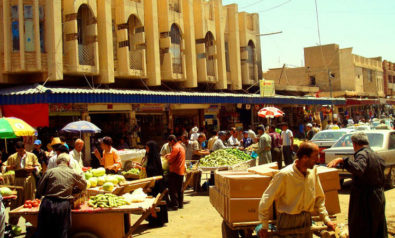
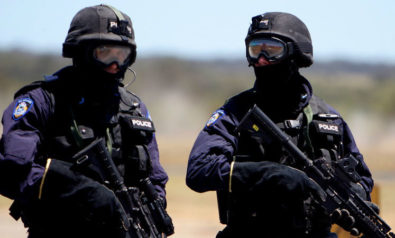

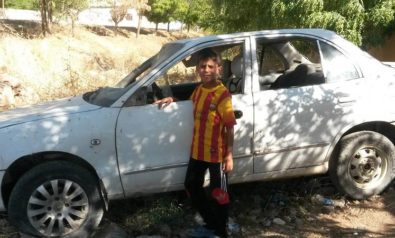
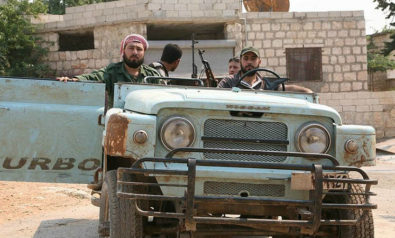
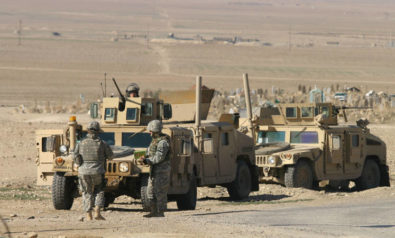
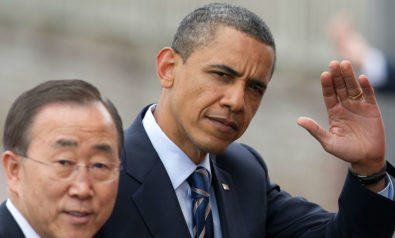

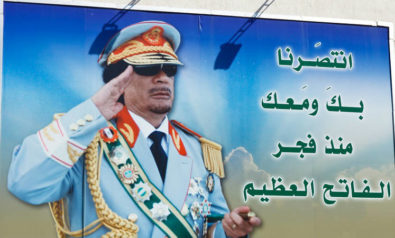


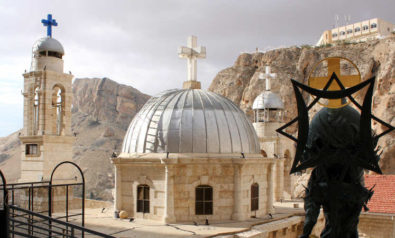


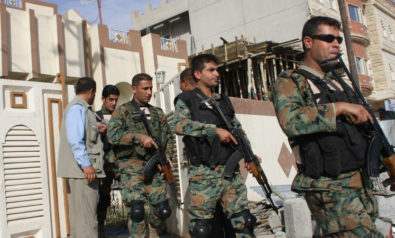
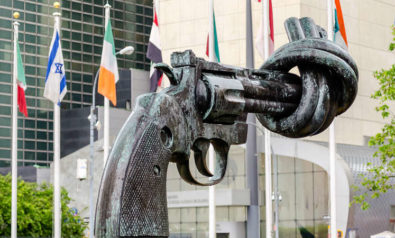

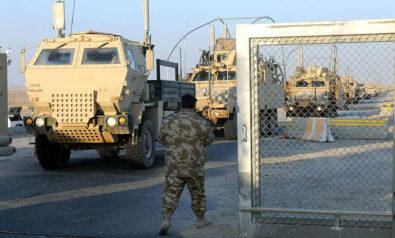





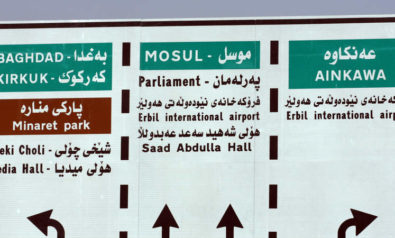
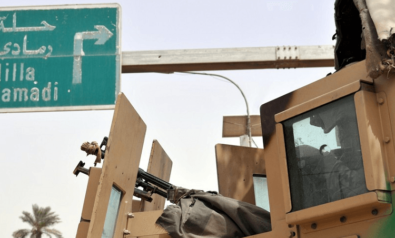


Comment